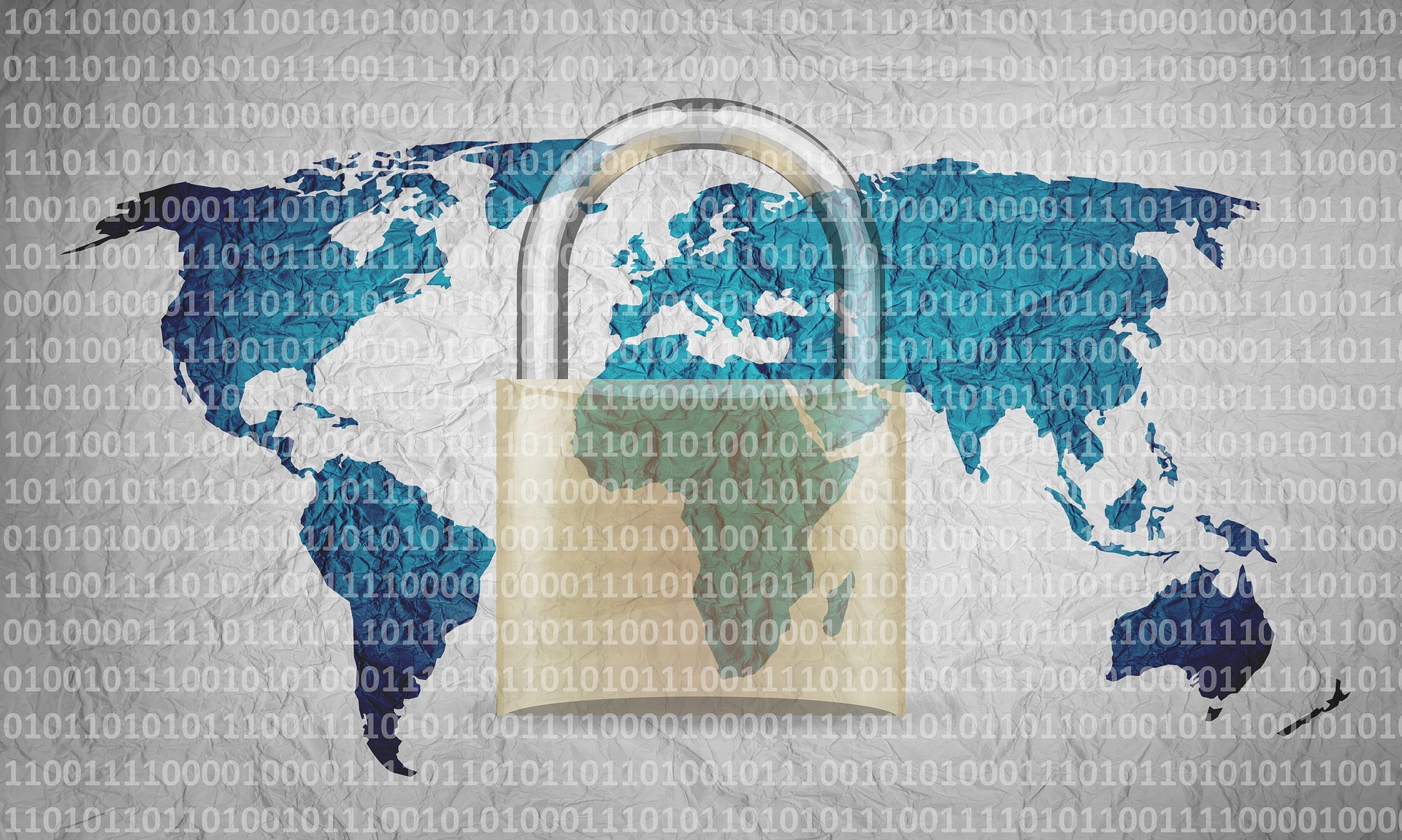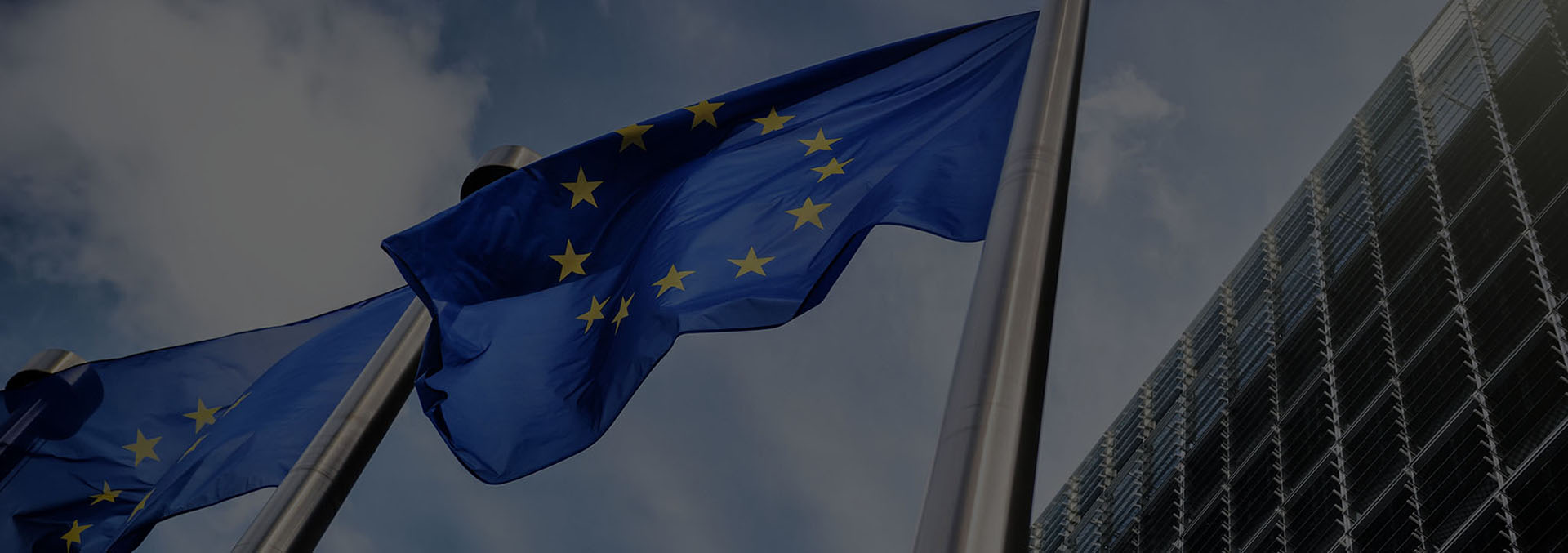Each creator of a web product or application on which personal data is processed is obliged to secure them by implementing the GDPR. Therefore, the application should contain several functionalities that increase the protection of data provided by users. How can a product designer ensure information security in accordance with the applicable GDPR rules?
October is the month of many new challenges in the field of cyber security and interesting implementation for clients. Unexpectedly something else happened - we were honored by Clutch.co and our brand Lemlock was included in the list of the TOP IT & Business Service Providers in Germany. See why Lemlock deserved this award.
When running an organization that is based on the use of IT systems or other applications, you should always consider cybersecurity and personal data protection issues. One negligence can have a number of negative effects and even lead to the collapse of the company. Find out if your business can be targeted by hackers and how to ensure the cyber security of your company and its resources.
Hackers are constantly looking for vulnerabilities in systems to make a devastating attack. Read about ensuring continuous security of application and compliance with the GDPR to ensure that your business is secure.
Read about two fundamental types of GDPR audits: for company and for applications. These are two complementary and necessary verifications that are worth introducing in business.
The e-commerce industry is particularly sensitive to changes in regulatory regulations due to the specificity of its marketing strategies. General Data Protection Regulation (GDPR) will make e-business once again measure their compliance with legislation.
Due to the approaching date of GDPR, entrepreneurs should verify whether the mechanisms used so far to collect and process data are in line with the new regulation. What necessary changes should therefore be made?
The competition between CMOs and CIOs is a hot topic. Is this rivalry advisable when the importance of both CMO and CIO increases at the same rate? How to achieve synergy in the cooperation of these two departments?
GDPR will be in effect soon!
General Data Protection Regulation (GDPR) entering into force on May 25, 2018. At the moment, marketing professionals are in a difficult position because they have to adapt to change and create plan actions that will prevent them from cybercrime.
Data is the most important resource in 21st Century that can easily gain market advantage. The General Data Protection Regulation (GDPR) provides the answer to people’s needs and support for the digital single market. But what about the proper functioning of Big Data?
What does the mysterious acronym of GDPR stand for?
As an entrepreneur you are definitely aware of the personal data that exist in company space. These are information about employees working for the organization (e.g. payrolls, complete personal data, photocopies of identity documents, ID or PESEL), as well as information about its clients (e.g. performed services, performed transactions and terms of cooperation). These data and their proper generation, processing and use are of great importance, but is it sufficient? This question is worth considering, as new European Data Protection Regulations come into force on May 25, 2018!
"Does GDPR affect me?" is a common question among entrepreneurs.
Recently, there has been a lot of buzz around the new pan-European data protection regulations - the General Data Protection Regulation (GDPR). Why? As it turns out, entrepreneurs are unaware that this Regulation will enter into force on May 25, 2018, and that they must plan and then make changes to the management of personal data. According to a survey conducted by the DMA in 2016, for the question of how much the surveyed companies are prepared for inevitable changes, 46% of them expressed complete readiness, 24% said they were partially ready, while 30% thought they were completely unprepared.
We already know that the May 2018 Regulation sets a new dimension in the protection of personal data and makes changes to the definition of sensitive data. This information plays a key role for companies processing them in space. Are there any additional confidential materials that could compromise the proper functioning of the organization and which are not covered by the General Data Protection Regulation - GDPR? Yes, and more importantly, when they are neglected they can cause the same (often irreversible) damage, loss of competitive advantage or loss of market position.
On September 12 the Ministry of Digitization published a draft law on the protection of personal data. The law is to clarify the solutions contained in the EU Regulation 2016/679, which will enter into force on 25 May 2018. What does it envisage for NGOs?
People do not realize how valuable their personal data is. Only when data is used by unauthorized persons/organizations do people realize that it was worth taking care of proper security. What if, despite the high level of protection, personal data is illegally acquired and used? There are many questions about how this can happen, who is responsible for it, and what the negative consequences of the situation will be.
Acquisition, management, rewriting and storage of data should be based on decisions that take into account possible risks. This risk may be due to poor processing conditions, improper removal, loss, theft, uncontrolled modification, unauthorized access, or improper storage. It is important to identify possible scenarios for data loss - to determine the probability and frequency of their occurrence, the degree of harm and, in the next step, to plan actions to bring the crisis to a standstill. It should be noted that the May Regulation is not a set of ready-to-use solutions. It does not provide clear-cut methods for dealing with the problems that may arise in the protection of personal data, but allows the requirements of the Regulation to be adapted to the scale and validity of the data.
Due to Data Protection Regulation, many companies may ask themselves whether their databases are also subject to regulation. It is particularly unclear when the company does not have information that directly identifies a particular natural person, such as a name and surname, but has a substitute, e. g. a pseudonym or only the IP address from which the network connection is made. Is it necessary to secure the data also in this case? What types of data should be protected according to GDPR?
The General Data Protection Regulation (GDPR, RODO) was established by the Regulation of the European Parliament and of the Council of April 27, 2016. This EU legislation contains provisions on the protection of individuals with regard to the processing of personal data and the free movement of such information. The purpose of the Regulation is to harmonize the process of personal data transfer across the EU. After a two-year transitional period, the Regulation will become effective in the Member States from May 25, 2018. The new regulations will be applied directly without the need for their implementation.
What is GDPR?
The distant vision of the draft data protection reform in the European Union becomes a reality. The EU's work on the introduction of uniform legislation launched in 2012 will soon come into effect. What does reform really mean? What is GDPR, RODO and what are the changes?
I hereby give consent to the processing of my personal data by the Personal Data Controller (hereinafter: "PDC") – Sagiton Sp. z o.o. ul. Fabryczna 19, 53-609 Wrocław, within the scope of: full name, e-mail address or telephone number, for the purpose of sale of products and services of Sagiton Sp. z o.o. and for the purpose of sending me feedback and making contact with me by Sagiton Sp. z o.o.
At the same time, I acknowledge that: at any time I can request the removal of my personal data from the PDC Sagiton Sp. z o.o. database, by sending an e-mail to [email protected], or a letter to Sagiton Sp. z o.o., ul. Fabryczna 19, 53-609 Wrocław, with a statement containing the relevant request, which shall result in the deletion of my personal data from the PDC Sagiton Sp. z o.o. database; I have the right to access my data; providing my data is voluntary, however refusal to provide it is tantamount to not receiving information regarding sale of products and services of Sagiton Sp. z o.o., as well as not receiving feedback and making contact with me by Sagiton Sp. z o.o.
In accordance with Art. 13 section 1 of the General Data Protection Regulation of 27 April 2016, (GDPR), we would like to inform you that the controller of your personal data is Sagiton Sp. z o.o. with its registered office at ul. Fabryczna 19, 53-609 Wrocław, e-mail: [email protected].
Your personal data shall be processed within the scope of: full name, e-mail address and/or telephone number in order to answer your question/request for contact and send feedback – pursuant to Art. 6 section 1 (a) of the GDPR, i.e. consent to the processing of personal data.
The data controller would like to inform you that your personal data shall not be disclosed to third parties.
Your data shall not be transferred outside of the European Economic Area or to international organizations.
Your personal data shall be processed until you withdraw your consent to the processing of data, as well as if the purpose for processing this data shall no longer be applicable.
You have the right to access your personal data, rectify it, delete it, restrict its processing, the right to transfer it, as well as the right to object.
In the case of giving your consent, you have the right to withdraw it at any time. Exercising the right to withdraw the consent does not affect the processing carried out before the consent was withdrawn.
You have the right to lodge a complaint with the supervisory body, i.e. the President of the Office for Personal Data Protection, ul. Stawki 2, 00-193 Warsaw.
Providing your personal data is a prerequisite for making contact with you by Sagiton Sp. z o.o. with its registered office at ul. Fabryczna 19, 53-609 Wrocław. In the case of not providing your personal data, Sagiton Sp. z o.o., shall not be able to contact you.
The Data Controller, Sagiton Sp. z o.o., would like to inform you that they shall not use your personal data for automated decision-making, which is based solely on automated processing, including profiling, and has legal effects for you or affects you significantly in a similar way.






















Let's stay in contact